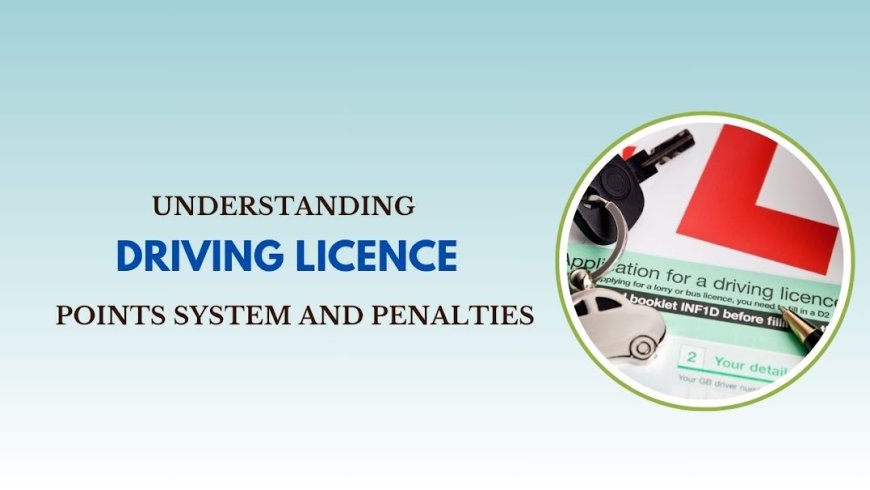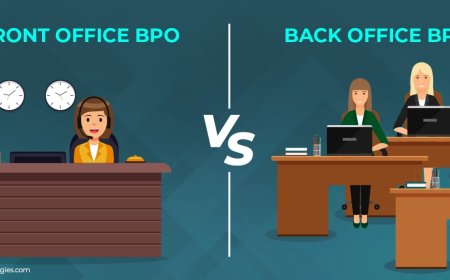Understanding the Driving Licence Points System and Penalties
To make roads safer and ensure people drive responsibly, the Indian government has introduced a Driving Licence Points System

India has one of the largest road networks in the world, and millions of people drive every daycars, bikes, trucks, buses, and more. But sadly, traffic accidents are very common, often caused by people breaking traffic rules or driving carelessly.
To make roads safer and ensure people drive responsibly, the Indian government has introduced a Driving Licence Points System. This system tracks the behavior of drivers and assigns penalty points when traffic rules are broken. If a driver breaks the rules too many times and collects too many points, their licence can be suspended or even cancelled.
This system is already used in many countries like the UK, Australia, and the USA. Now, India is joining them to improve road safety and reduce the number of accidents.
What is the Driving Licence Points System?
The driving licence points system is a method used by the government to keep track of traffic rule violations. Heres how it works:
-
Every time you break a traffic rule, penalty points are added to your driving record.
-
Each type of violation has a fixed number of points.
-
If you collect 12 or more points within three years, your licence can be suspended or cancelled.
-
Points are removed after one year if there are no new violations.
This means if you drive safely and follow the rules, your record stays clean. But if you drive dangerously, the points build up, and you may lose your licence.
What Happens When You Collect Too Many Points?
The system has clear penalties based on the number of points you collect:
-
Up to 11 points: Warning and counselling.
-
12 points within 3 years: Driving licence suspended for 1 year.
-
Second time collecting 12 points: Licence cancelled for 5 years.
In addition, for serious offences like drunk driving or causing death due to negligent driving, your licence can be cancelled immediately, even if you dont have 12 points.
How Demerit Points Are Tracked
The Ministry of Road Transport and Highways has integrated the point system with VAHAN and SARATHIthe central databases used for vehicle and licence registration. Every traffic offence is digitally recorded, and points are automatically added to your profile.
Traffic police now use mobile apps or handheld devices to update the database in real time. This ensures that even if you are caught in another city or state, your offence is recorded.
Merit Points for Good Driving
While the system punishes bad driving, it also plans to reward good behavior. The government is working on a way to give merit points for:
-
Completing defensive driving courses
-
Following traffic rules for a long time (e.g., 3 years without violations)
-
Volunteering for road safety programs
These merit points can help reduce the effect of demerit points and improve your record.
Why This System is Being Introduced
The goal is not to punish people but to encourage safe and responsible driving. Some of the main reasons behind this system are:
-
Reducing Accidents: By discouraging risky driving behaviors.
-
Identifying Habitual Offenders: Helps police track repeat rule breakers.
-
Promoting Road Discipline: Drivers will be more careful if they know their licence is at risk.
-
Saving Lives: Fewer accidents mean fewer injuries and deaths on the road.
How to Check Your Points
You will be able to check your current point status online through the Parivahan website or mobile app once fully launched. Here's what you will need:
-
Driving Licence Number
-
Registered mobile number
-
Date of birth or Aadhaar (for verification)
Youll see a dashboard showing:
-
Total points on your record
-
Details of violations
-
Dates of offences
-
Expiry of points (if no repeat violations)
How This Affects You as a Driver
Lets see how different types of drivers will be impacted:
1. Private Vehicle Owners
If you break rules like speeding or using a phone, you will be penalized. If you often drive in a hurry or ignore red lights, your points will add up fast.
2. Commercial Drivers (Taxi, Truck, Bus)
Since these drivers are on the road daily, they are more at risk of violations. Its important for them to stay alert and avoid common mistakes like not wearing seatbelts or overloading.
3. New Drivers
New licence holders are expected to be more cautious. But if they collect 12 points early, they may not be allowed to drive for several years.
Driving Test for Licence Renewal
If you have repeated violations, you may be asked to take a re-test when renewing your licence, even if its not expired. This ensures that you still know the rules and can drive safely.
Impact on Insurance and Loans
Insurance companies may start using your point record to decide your:
-
Premiums: More violations = higher insurance cost
-
Claims: Repeat offenders may find it harder to get accident claims
-
Loan Approvals: Some banks check your driving record before giving vehicle loans
How to Keep a Clean Driving Record
Here are some simple tips to avoid collecting penalty points:
-
Always Follow Speed Limits: Know the speed limits in your area.
-
Stop at Red Lights: Never try to beat the signal.
-
Use Your Seatbelt and Helmet: Every single time.
-
Avoid Phone Use: Even hands-free calls can distract you.
-
Follow Parking Rules: Dont park in no-parking zones.
-
Stay Sober: Never drink and drive, even just one drink.
-
Carry Your Documents: Licence, registration, insurance, and pollution certificate.
Benefits of the System to the Nation
This points system is not only good for individuals but also has benefits for society:
-
Lower Road Accident Rates: Fewer violations lead to fewer crashes.
-
Better Traffic Flow: Disciplined driving leads to less congestion.
-
Improved Law Enforcement: Police can focus on repeat offenders.
-
Positive Driving Culture: Encourages polite and safe driving habits.
Suggested read- How to Check Driving Licence Status in India
Conclusion
The Driving Licence Points System is a smart move towards improving road safety in India. It promotes a culture of responsibility, discipline, and awareness among all driversyoung or old, new or experienced.
By keeping your record clean and following simple rules, you not only protect your own licence but also protect lives on the road. This system is not about punishing peopleits about changing behavior and making our roads safer for everyone.
So, the next time you start your car or bike, remember: Every action counts. Every point matters. Drive safe, stay safe.







































